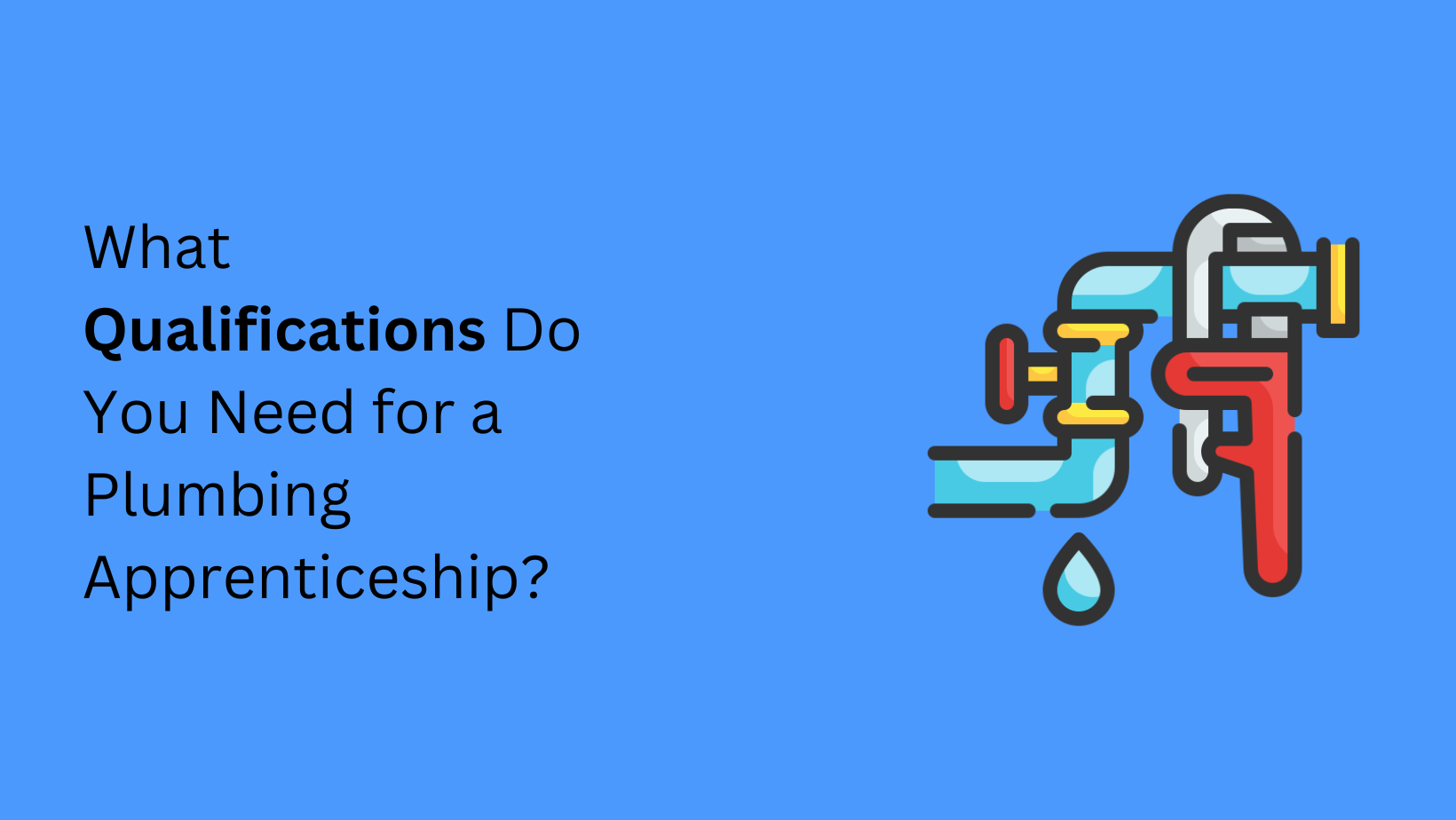Apprenticeships are an excellent way to gain practical skills and knowledge while earning a wage. However, you may wonder, “What qualifications do you need for a plumbing apprenticeship?
This article will provide detailed information on your qualifications to embark on this rewarding journey.

Age and Educational Requirements
You first need to know that there’s no fixed age requirement to start a plumbing apprenticeship. However, most apprenticeships are available to individuals aged 16 and over. You’ll also need a minimum level of education, typically a good grasp of English and Maths, often at GCSE grade A*-C or equivalent. Some employers may require higher grades or other related qualifications.
Essential Personal Qualities
Apart from academic qualifications, certain personal qualities are essential for success in plumbing:
- Problem-solving skills: Plumbing often involves troubleshooting and finding solutions to unexpected issues.
- Physical fitness: Plumbing work can be physically demanding, so being in good shape is important.
- Manual dexterity: You’ll need good hand-eye coordination for soldering and pipe fitting tasks.
- Communication skills: Clear communication is crucial when working in a team or dealing with customers.
Finding an Apprenticeship Opportunity
Once you meet the basic requirements, securing an apprenticeship position is next. There are several ways to go about this:
- Apprenticeship Vacancies: Many plumbing employers advertise apprenticeship vacancies on websites like ours or local job boards. Keep an eye on these platforms and apply when you find suitable positions.
- Networking: Building connections with plumbing professionals can open doors to apprenticeship opportunities. Attend trade events, join online forums, and connect with local plumbers to learn about available positions.
- Training Providers: Some colleges and training providers offer plumbing apprenticeships. Check their websites for information on available courses and application procedures.
Registering with a Training Provider
They typically handle the apprenticeship registration process if you secure an apprenticeship position with an employer. However, if you go through a training provider, you must register with them. To do this, you’ll need:
- A Unique Learner Number (ULN): You can obtain this from your school or college, and it helps track your educational achievements.
- National Insurance Number: This is essential for tax and National Insurance contributions.
- Proof of Eligibility: You may need proof of your eligibility to work in the UK, such as a passport or birth certificate.
Health and Safety Requirements
Before starting your plumbing apprenticeship, you must know health and safety regulations. This includes understanding how to work safely with tools, equipment, and chemicals commonly used in plumbing. Many apprenticeships include health and safety training as part of the program.
Background Checks
Some employers may require you to undergo background checks, including a DBS (Disclosure and Barring Service) check, especially if you work in sensitive environments like schools or healthcare facilities.
Commitment and Dedication
Finally, one of the most important qualifications for a plumbing apprenticeship is your commitment and dedication to the trade. Plumbing can be a challenging profession, but it’s also highly rewarding. Employers look for eager individuals to learn, work hard, and take pride in their work.
Summary
Pursuing a plumbing apprenticeship involves meeting certain age and educational requirements, possessing essential personal qualities, and actively seeking apprenticeship opportunities. Registering with a training provider or securing a position with an employer will kickstart your journey towards becoming a skilled plumber. Dedication and a strong work ethic are just as important as academic qualifications in this trade.
